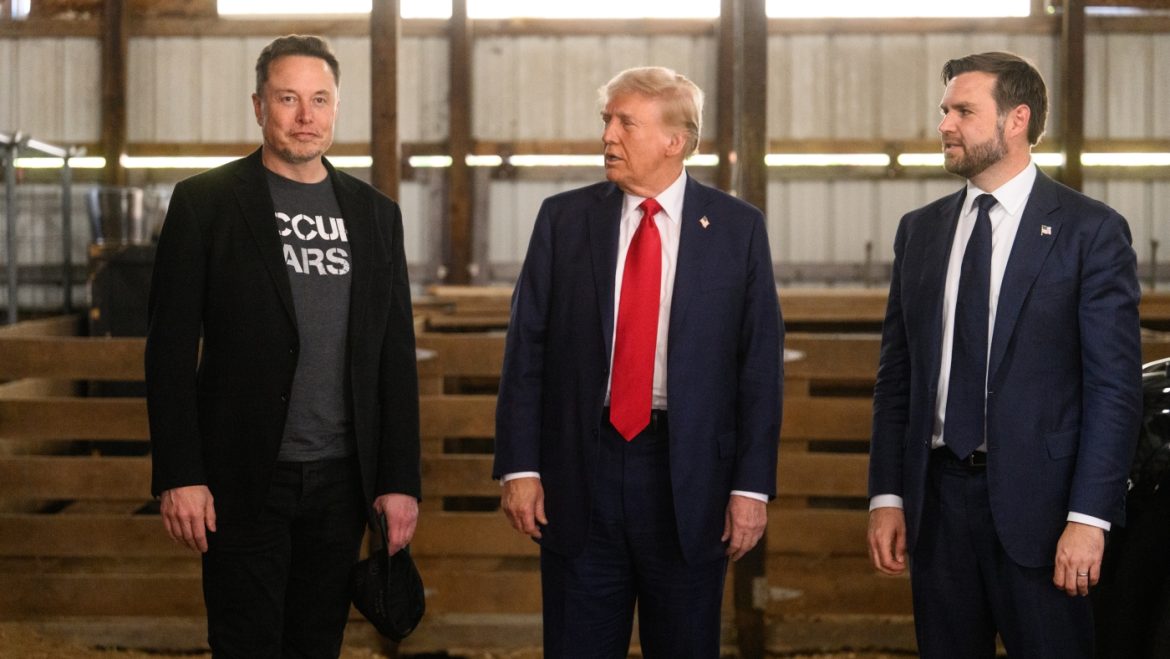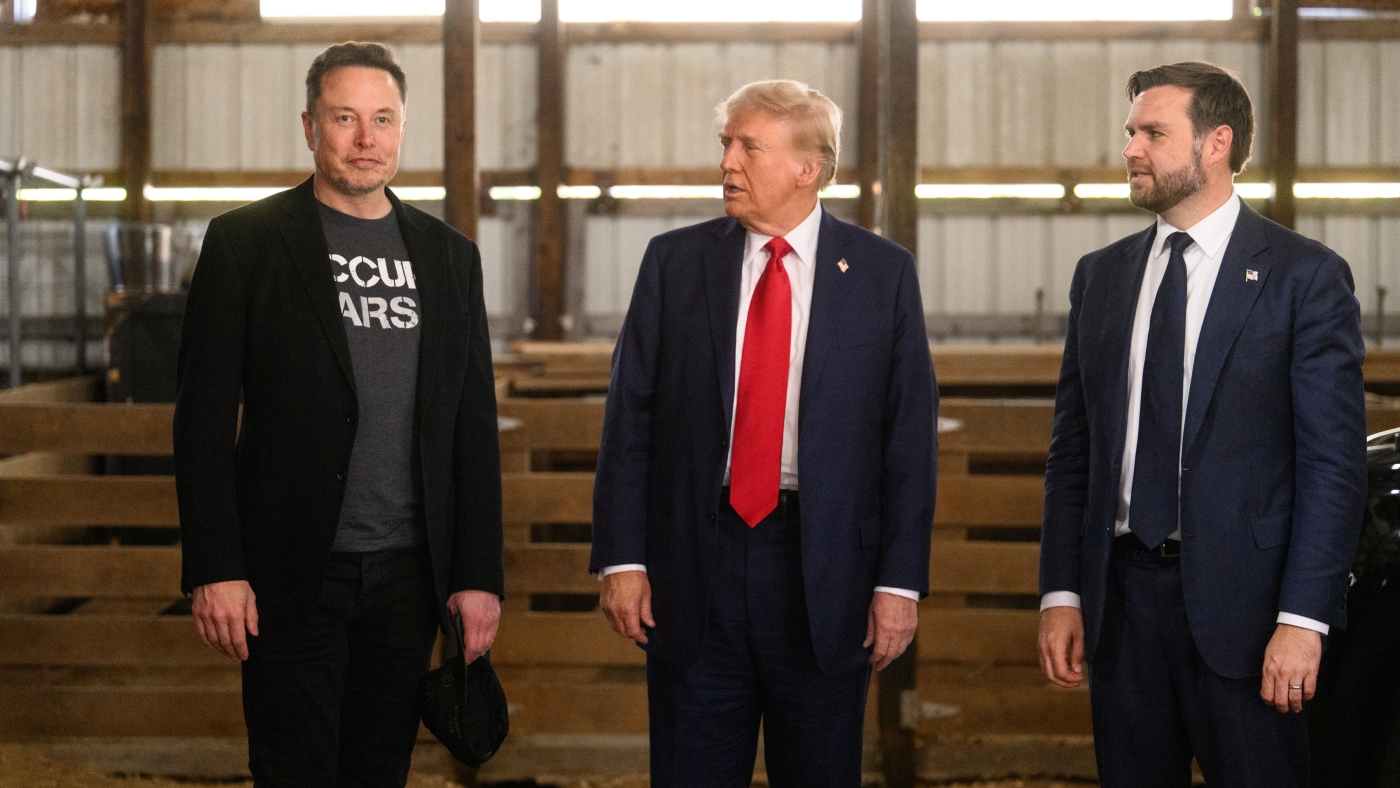Navigating Loyalty and Frustration: JD Vance’s Balancing Act Between Trump and Elon Musk
The recent public exchanges involving former President Donald Trump and tech magnate Elon Musk have thrust JD Vance, the U.S. Vice President, into the eye of a complex political and personal storm. Vance’s responses embody a nuanced diplomatic approach, reflecting unwavering loyalty to Trump while simultaneously acknowledging Musk’s grievances. To understand the dynamics at play, it’s essential to explore the intertwining relationships, the tensions that have ignited the feud, and the political strategy embedded in Vance’s stance.
The Trump-Musk Feud: A Clash of Titans
At the core of the recent turmoil lies a bitter dispute, with Musk openly criticizing Trump’s expansive budget bill — dubbed the “Big Beautiful Bill” by the former president. Musk’s vocal opposition, conducted across social media platforms, represents more than just policy disagreement; it highlights deeper frustrations from a major private-sector influencer toward the executive’s approach to governance and economic management.
For Trump, Musk embodies both a technological visionary and a political wildcard. His criticism threatens to undermine Trump’s agenda and sway public and congressional opinion. Conversely, Musk’s willingness to challenge Trump publicly underscores his independent streak and his challenge to the conventional political order.
JD Vance’s Diplomacy: Balancing Loyalty with Understanding
Faced with this fracturing, JD Vance’s position is delicate yet strategically crafted. In several interviews and podcast appearances, Vance has been clear about his allegiance to Trump, describing himself as “loyal” to the former president. This signals strong political solidarity, essential for maintaining coherence within the Trump-aligned leadership circle.
Simultaneously, Vance expresses comprehension of Musk’s frustrations, praising the entrepreneur as “incredible” and recognizing the legitimacy of his concerns. This multidimensional posture avoids the polarizing extremes of outright condemnation or blind defense. Instead, Vance adopts a middle path—showing loyalty without shutting out an influential business figure whose support remains valuable.
Trump’s own advisement to Vance seems to have encouraged this diplomatic tone, avoiding personal attacks and instead focusing on clarity and calm response. This strategy reflects a larger political principle: maintaining unity among allies while managing public perceptions and potential fractures within support bases.
The Political and Strategic Implications
Vance’s handling of the situation may be viewed as a masterclass in political tact—often likened to a “Game of Thrones” tactic due to its subtlety and careful positioning. His refusal to escalate the feud or viciously counterattack Musk aligns with longer-term political calculations. Fractious public spats are rarely productive; instead, maintaining open channels and projecting measured responses is conducive to managing broader alliances.
However, reports indicating frustration among some Trump allies about Musk’s unpredictability introduce an element of tension beneath the surface. Musk’s communication style and public antics create uncertainty about his reliability as a political ally, posing potential liability and challenges for coordinated governance. Vance’s acknowledgment of this delicate balance shows an awareness of the complexities within the Trump camp.
Musk’s Continuing Role: Advisor and Challenger
Despite the rocky interactions, Vance asserts that Musk’s role as an advisor to Trump will persist. This continuation highlights the practical need for Trump’s administration to engage with leading innovators and business minds, reinforcing the notion that dissent and collaboration can coexist.
Vance’s praise for Musk’s entrepreneurial achievements further complicates the narrative, suggesting that while disagreements are present, respect for Musk’s contributions remains intact. Such recognition reinforces the political strategy of amalgamating powerful voices rather than alienating them, a tactic significant in a politically fragmented landscape.
The Broader Context: Loyalty, Criticism, and Political Realities
The evolving narrative between Trump, Musk, and Vance illustrates the profound challenges political figures face when balancing personal loyalties, public criticism, and strategic alliances. Vance’s approach contrasts sharply with more confrontational political postures, emphasizing measured response and loyalty without sacrificing openness to critique.
Moreover, this situation exemplifies the growing complexities of modern political leadership, where social media battles, billionaire influence, and traditional political loyalty converge. Navigating this terrain requires careful messaging that acknowledges the legitimate frustrations of powerful figures while consolidating political bases.
Conclusion: A Lesson in Political Poise and Pragmatism
JD Vance’s stance amid the Trump-Musk feud provides a revealing glimpse into the art of contemporary political diplomacy. By professing steadfast loyalty to Trump while simultaneously embracing Musk’s frustrations and contributions, Vance embodies a pragmatic middle ground—one that preserves alliance cohesion without stifling necessary discourse.
This balance, underscored by Vance’s strategic restraint and thoughtful communication, offers a powerful lesson in managing competing interests within high-stakes politics. As such battles among influential leaders continue, the ability to reconcile loyalty with empathy and criticism may well define successful political stewardship in an era marked by volatility and rapid change.


